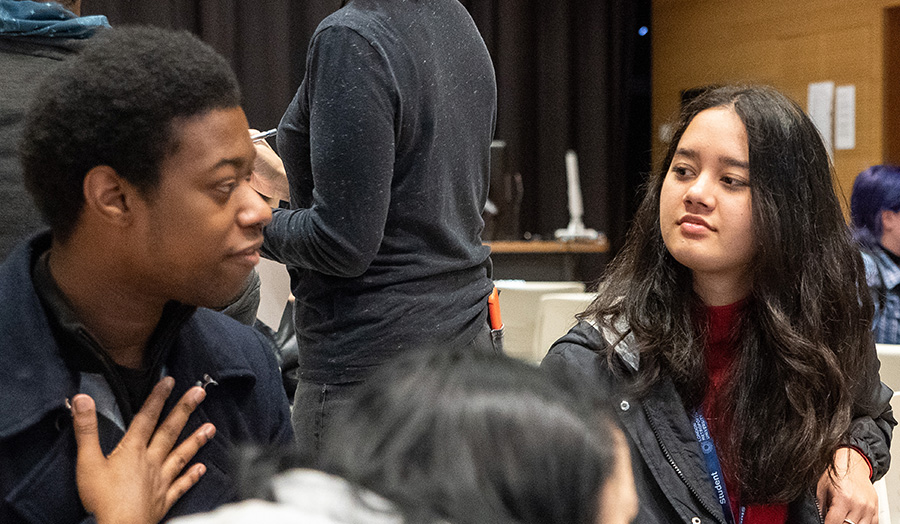London Met holds itself accountable to an agenda of meaningful pedagogic and systemic change, ensuring that success for our students is not dependent on assimilation and homogeneity. The Centre enables us to examine and enhance all aspects of our academic provision and practices to ensure they support the creation of conditions where every individual can excel, fulfil their potential and become a positive force for social justice within the London and wider economy.
Our work to tackle the awarding gap is organised around the following holistic approach:
- The establishment of an institutional KPI for the degree awarding gap at Board level as part of the Vice-Chancellor’s corporate plan 2020/21- 2024/5.
- An overhaul of academic quality review processes and learning and teaching committees to review progress on the degree awarding gap on a continual basis throughout the academic quality calendar at course and school level.
- The introduction of the Value-Added score (VA) to accurately measure differential attainment of student groups, drive engagement of academic and professional teams, and identify contributing factors towards the awarding gap.
- The development and adoption of the Education for Social Justice Framework (ESJ), which combines the principles of inclusive pedagogy with a progressive, values-based vision of a curriculum that reflects the mission of London Met. By embedding the values of social justice, compassion and inclusion throughout our pedagogy and student experience, the ESJ will ensure our curricula and practice align with the principles of equity, with who our students are, and the challenges facing London and its communities.
- A comprehensive and mandatory Inclusive Behaviours training programme to enhance their knowledge and practice in relation to anti-racism, harassment, discrimination, inclusive pedagogy and our equality duties. The training workshops, coordinated by the University’s Centre for Professional and Educational Development include:
- education for social justice pedagogy
- equality essentials
- bullying and harassment
- cultural awareness
- bias, discrimination and racism
- white privilege
- anti-oppression and anti-racism
All student-facing staff and the Senior Management Team will complete the Inclusive Behaviours programme by Summer 2021. All remaining professional service staff will complete a similar version of the programme during 2021-2022. All new staff will complete the training within six months of joining London Met.
- We have also introduced a Student Curriculum Partner programme to enhance the voice of our diverse student cohort in the creation, delivery and evaluation of our academic offer. Our Student Curriculum Partners work collaboratively alongside members of staff as equal partners, to help them reflect on their practice and to advise how course materials and activities can be made more engaging, inclusive and accessible to all students on the course.
As we take this work forward there will be much to be learned about both the contributing factors of the gap and the interventions that are most effective at improving the outcomes for Black and minoritised students.
The focus of our attention and effort must be on improving our practice, enhancing our provision and eliminating structural disadvantage within our processes. We will only achieve our goals by taking a whole institution approach to enhancing our inclusive culture and learning environment. We will be driven by data, research and proven practices from across the sector, and are committed to working with students as partners in all our activities along with the Students’ Union, academic and professional teams, as well as local and sector partners.
At London Met, tackling the awarding gap is everyone’s responsibility.

